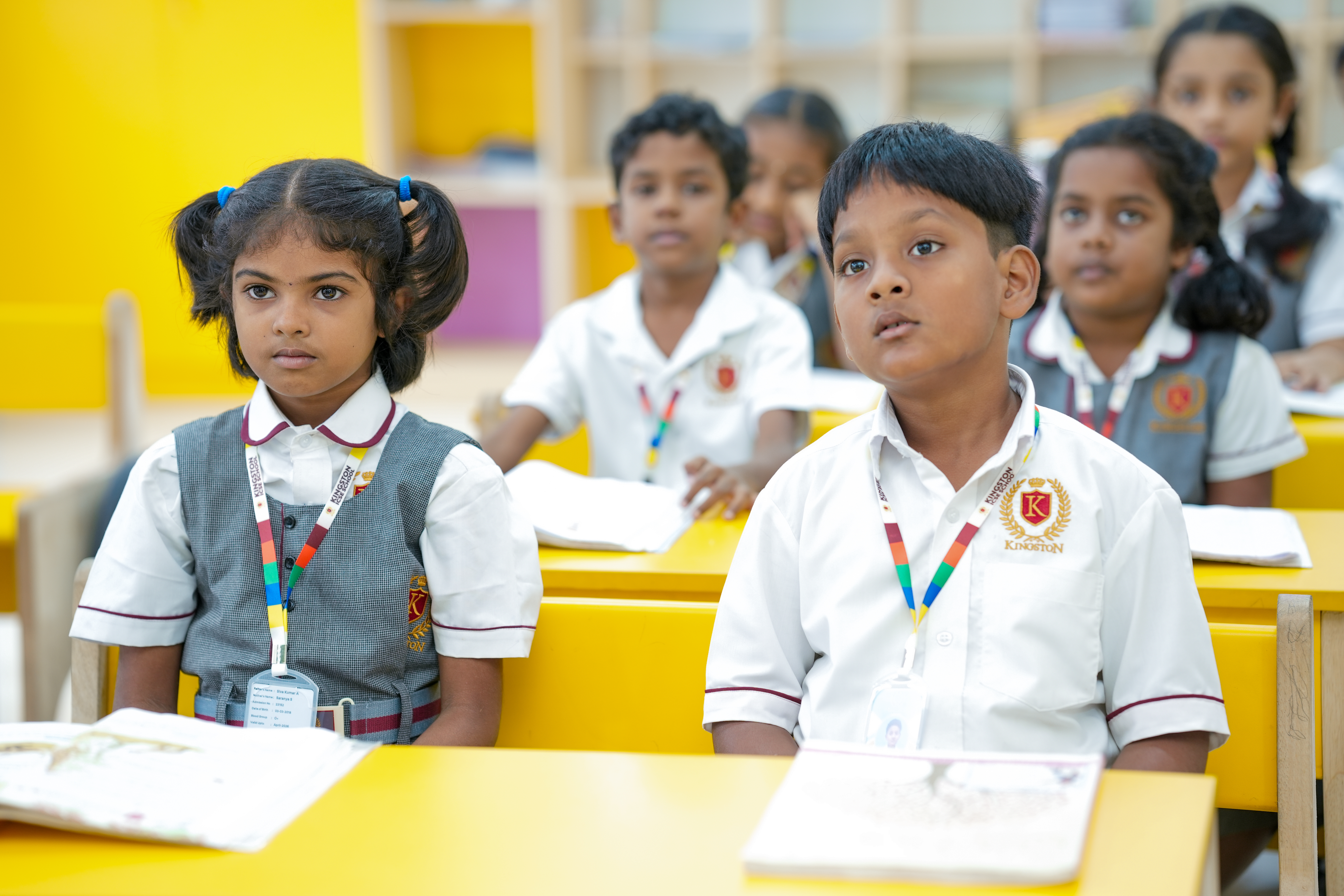
Learning by Doing Things, Not Reading About Them
There's something special in a child's eye when they discover something not through a book but by doing it themselves. Whether it's making a volcano using baking soda or planting a seed and seeing it grow, the thrill of learning by doing is unbeatable.
At Kingston ICSE, we feel that education is not merely about memorizing facts about living them, learning the 'why,' and comprehending the 'how.'
1. From Pages to Practice:
Yes, books matter. But when those principles get fleshed out in actual life situations, they remain. A lesson about the water cycle becomes more substantial when kids graph rain or build model weather systems. A measurement lesson makes sense when they're baking cookies and discover one cup of flour is far different from a whole heap of one!
We invite kids to touch, try, test, and tinker. Because all those science-experiment stains and hand-drawn map wobbles are worth more learning than the underlined chapter that's perfect in every way.
2. Let Curiosity Lead the Way:
Children ask lots of questionsand that's a blessing. At Kingston, we open our arms (and perhaps a few art supplies) to those questions. Why does glue dry quicker when it's near the fan? Can we make a plant using only cotton and water? These aren't distractions, they're doorways to discovery.
By giving children space to explore, make mistakes, and try again, we help them build confidence, independence, and a deeper understanding of the world around them.
3. Skills for Life, Not Just the Exam:
When children learn by doing, they’re not just absorbing knowledge they’re applying it. This builds problem-solving skills, encourages teamwork, and fosters creativity. It prepares them not just for exams, but for life beyond school walls.
At Kingston ICSE, we combine learning with action. From project-based learning to outdoor experiments, art-integrated studies to group tasks, we ensure that each lesson leaves an indelible mark.
4. Learning Should Feel Like Discovery:
At the end of the day, we'd like your child to return home with notes in their backpack, certainly, but with stories in their heart. Tales of what they saw, felt, constructed, or worked out independently.
Because the best type of learning is the type that feels like play, sounds like laughter, and lasts a lifetime.